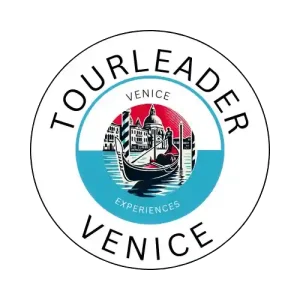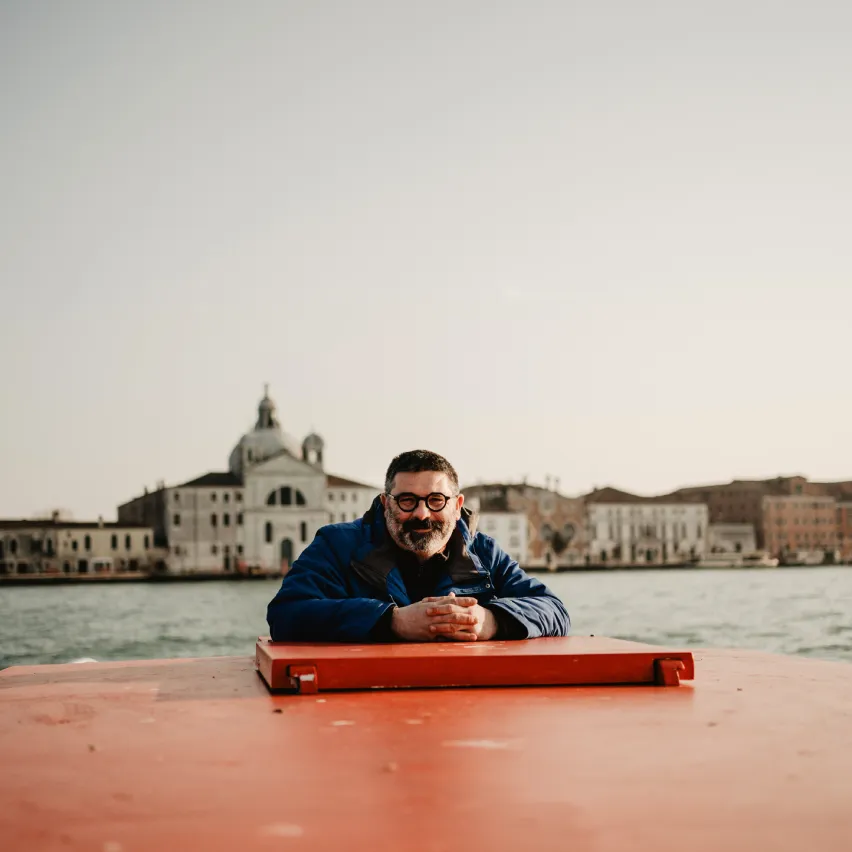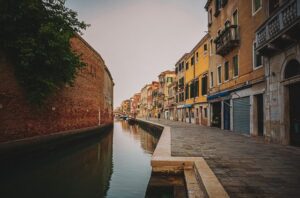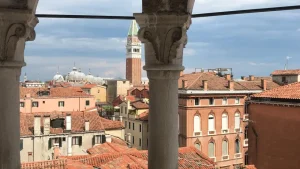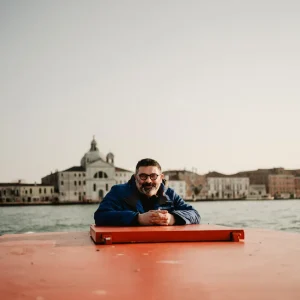🌍 Responsible Travel in Venice: How Conscious Tourism Can Keep the Floating City Alive
Venice stands at a crossroads. One of the world’s most remarkable UNESCO World Heritage cities faces an identity crisis: how to welcome visitors without losing its soul. With over 25 million visitors each year and barely 50 000 residents, the city’s balance between heritage and humanity has never been more fragile.
But there’s hope — and it begins with travelers who understand that responsible tourism isn’t a restriction. It’s a privilege: a way to experience the real Venice while helping preserve it for future generations.
At Tour Leader Venice, we’ve seen how authentic experiences transform tourism from pressure into preservation. Supporting local people, artisans, and traditions keeps Venice alive — and gives visitors richer, more meaningful moments than any checklist of “top sights” ever could.
🏛️ Understanding Venice’s Tourism Challenge
The problem isn’t just crowded bridges or long queues at the Doge’s Palace. It’s the deeper shift: traditional homes becoming short-term rentals, neighborhood bakeries replaced by souvenir shops, and locals moving out as prices rise. When Venetians leave, the city’s living culture leaves with them.
Responsible travel means reversing this tide. By choosing local guides, family-run businesses, and sustainable tours, every visitor helps rebuild the fragile ecosystem of daily Venetian life.
💶 How Every Choice Shapes Venice’s Future
Every euro spent in Venice makes a statement. Spend it at a global chain, and it vanishes overseas. Spend it in a family-run osteria or artisan workshop, and it circulates through the community — paying fishermen, glassmakers, and market vendors who form Venice’s true foundation.
Our Off-the-Beaten-Path Tour shows this impact in real time: guests meet shopkeepers, café owners, and artisans whose livelihoods depend on residents, not mass tourism.
- 💠 Support family restaurants using ingredients from the Rialto Market.
- 🛠️ Buy directly from Murano or Burano artisans instead of souvenir chains.
- 🚶♀️ Join walking and rowing tours that create zero wake pollution.
These small acts ripple outward — economically, culturally, and environmentally.
🍝 Supporting Authentic Venetian Dining
Family-Run Osterias & Trattorie
Venetian cuisine tells the story of survival on the lagoon: seafood caught hours before, spices from ancient trade routes, and recipes passed down like heirlooms. Eating locally means preserving this living history.
Osteria alle Testiere and Antiche Carampane are perfect examples — tiny, family-operated, sourcing from the Rialto Market and serving dishes that taste of the sea and centuries combined. Meals here aren’t just delicious; they’re cultural preservation in motion.
The Bacaro Tradition
No Venetian experience is complete without stepping into a bacaro — a cozy wine bar where locals stand shoulder-to-shoulder, sipping a glass of prosecco and sampling cicchetti (Venetian tapas). Supporting bacari like All’Arco or Do Spade means keeping neighborhood life alive.
Join our Cicchetti & Wine Tour to explore these hidden gems, learn the unwritten rules of bacaro culture, and toast to sustainable tourism — one ombra (glass of wine) at a time.
🎭 Supporting Artisans & Traditional Crafts
Venice was built by craftsmen — glassblowers, mask makers, boat builders, printers, tailors. Their skills are the city’s heartbeat, yet many struggle against cheap imports and souvenir factories. Choosing authentic artisans keeps centuries of knowledge alive.
Murano Glass: Fire & Family Legacy
Skip the factories; step instead into a true workshop with our Murano Glass Workshop Tour. Here, masters still shape molten glass at 2 000°F, just as their ancestors did. Buying a single handmade bead supports families who’ve worked in glass since the 14th century.
Venetian Mask Making
The Carnival mask is more than decoration — it’s identity, rebellion, and art. In our Mask Workshop, guests learn papier-mâché techniques and paint their own creations under the guidance of real artisans. Each mask helps sustain a craft nearly lost to mass production.
Bookbinding & Paper Arts
Visit a centuries-old bindery during our Paper Marbling Workshop or Letterpress Printing Experience. You’ll leave with ink-stained hands, a handmade notebook, and a deep respect for craftsmanship that values patience over profit.
🛍️ Shopping With Purpose
Venice’s charm once came from its everyday shops — spice stores, fishmongers, fabric sellers — each rooted in tradition. Responsible shopping means finding them again.
Markets & Specialty Stores
The Rialto Market still buzzes with energy each morning, its stalls heavy with lagoon fish and seasonal produce. Buying there supports local fishermen and farmers who maintain sustainable practices.
Nearby, Drogheria Mascari sells spices, coffee, and regional delicacies the same way it did in 1948 — proving authenticity never goes out of style.
Neighborhood Treasures
Support bookshops like Libreria Acqua Alta, where books are stacked in gondolas to survive floods. It’s quirky, yes — but also a symbol of Venetian resilience.
🏠 Where You Stay Matters
Short-term rentals have squeezed out residents. Choosing family-run hotels or locally owned apartments keeps income within the city and helps maintain Venice as a living community, not a stage set.
Hotel Al Reali, for example, occupies a restored 16th-century palazzo, employs Venetians, and sources food from neighborhood markets. Staying there supports real families — not faceless investors.
Ask your host who owns the building. If the answer is “my grandmother,” you’re in the right place.
🚤 Getting Around Sustainably
Traditional Gondolas & Rowing Experiences
A gondola ride isn’t just romance; it’s heritage. Licensed gondoliers are keepers of maritime history, trained for years in navigation and storytelling. Choose tours that emphasize culture, like our Private Gondola Ride or Row Like a Venetian lesson — and discover what “rowing through history” truly means.
Water Taxis & Transfers
Venice’s transfer services employ local pilots who know the lagoon like family. By choosing cooperative-run taxis — or booking directly through Tour Leader Venice Transfers — you ensure fair wages, local employment, and fuel-efficient routes.
🎶 Cultural Experiences That Give Back
Venice’s culture isn’t confined to museums; it lives in music, festivals, and daily life. Seek experiences that celebrate — not commodify — tradition.
Attend a Vivaldi Concert at San Vidal or an authentic Baroque performance supporting local musicians. Or join small neighborhood festivals, where Venetians sing traditional canti dei gondolieri — echoing songs carried by the tides for centuries.
🌿 Environmental Responsibility
Venice’s lagoon is its lifeblood — and its most vulnerable asset. Waves from high-speed boats erode foundations, pollution disrupts ecosystems, and waste disposal strains city budgets.
Our Lagoon Discovery Tour shows how responsible travel helps protect these waters. We visit fragile islands, meet fishermen using sustainable nets, and explain how conscious tourism directly funds lagoon research and restoration.
- Use refillable bottles and avoid single-use plastics.
- Take slow transport — gondolas, vaporetti, rowing boats.
- Respect quiet zones and wake limits.
🧭 The Role of Local Guides
Licensed Venetian guides don’t just share facts — they safeguard perspective. They live the reality tourists only glimpse: rising tides, shrinking communities, and daily adaptation. Choosing a local guide means your tour fee stays in Venice and funds professionals dedicated to preserving its culture.
Join us for a small-group walking tour or private heritage experience — every story told helps sustain the storytellers who keep Venice’s past alive in the present.
🤝 Building Long-Term Connections
Responsible travel doesn’t end when your flight departs. Many of our guests stay in touch with the artisans, shopkeepers, and guides they meet — ordering Murano glass directly, returning for cooking classes, or supporting lagoon clean-ups from abroad. These bonds turn tourism into partnership.
Each return visit strengthens the network keeping Venice human. It’s how small acts grow into sustainable legacies.
📊 Measuring Your Impact
Think of your spending as a vote. Every cappuccino, concert ticket, or souvenir either strengthens community life or erodes it. The difference lies in who benefits.
Spend locally, and your euros may circulate five or six times within the city — feeding markets, workshops, and families. Spend on imports, and they vanish instantly. Conscious travel is economic democracy at its best.
🚀 The Future of Travel in Venice
Venice doesn’t need fewer visitors — it needs better ones. Travelers who slow down, stay longer, and seek authenticity over convenience are already helping reshape the city’s tourism model.
Our private and small-group tours are part of this new chapter: sustainable, educational, and deeply local. We believe the most unforgettable experiences come from participation, not observation.
🌿 Explore Sustainable Tours in Venice
❤️ Travel That Preserves
Venice’s greatest treasure isn’t its palaces or paintings — it’s its people. When you eat in their osterias, ride in their boats, buy their crafts, and listen to their stories, you become part of Venice’s living heritage.
Responsible travel isn’t a sacrifice. It’s an upgrade: deeper connections, truer flavors, and memories that outlast selfies.
Ready to make your visit part of Venice’s survival story?
💙 Plan Your Responsible Venice Experience with Tour Leader Venice
FAQs — Responsible Travel in Venice
How can I be a responsible traveler in Venice?
It starts with simple, conscious choices: book local guides, stay in family-run hotels, and eat at osterias that source from the Rialto Market. Experiences like our Off-the-Beaten-Path Orientation Tour or Cicchetti & Wine Tour connect you directly with Venetians who depend on sustainable tourism. Every euro spent locally supports artisans, fishermen, and real families who keep the city alive.
What are some eco-friendly ways to explore the city?
Skip high-speed boats and explore slowly — on foot, by vaporetto, or with a traditional rowboat. Our Venetian Rowing Experience and Slow Lagoon Sunset Tour are perfect low-impact options. They let you enjoy Venice’s beauty while protecting its fragile lagoon ecosystem.
How does Tour Leader Venice support sustainability year-round?
Each tour is designed around local employment, cultural preservation, and environmental respect. Joining a Murano Glassblowing Workshop, Mask-Making Workshop, or Lagoon Discovery Tour helps fund artisan training, sustainable transport, and ongoing restoration projects — ensuring your visit leaves a positive legacy for future generations.
